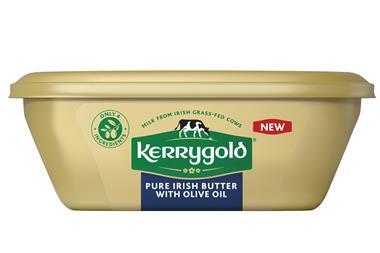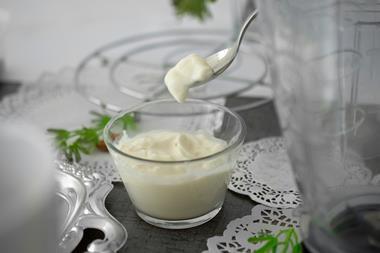The Competition Commission has so far stopped short of openly supporting the claims of many farmers that supermarkets are at the root of all their woes. But it is concerned about the huge fall in farmer numbers and plummeting production.
"The Commission has taken on the submission we made," says Robin Tapper, head of food chain at the NFU. "I think Freeman understands there is a case now. It is time for farmers to come forward with evidence."
Most of all, the Commission wants answers from the retailers over milk pricing. Why has the retailers' share of the shelf price of milk increased to the detriment of farmers?
In just three years from 2003 to 2005, the supermarkets' share has risen from less than 28% of the milk price to more than 31%, while farmers' share has fallen two percentage points and processors' by 1.4 points. Farmers are now getting 18.5p per litre (ppl) for their milk, while retailers' share has grown from 12.9ppl in 2003 to 15.6ppl in the same period.
"We're aware individual farmers appear to have had a very tough time recently," says a spokesman for the Competition Commission. "We're not saying it's all down to the retailers, but we'll definitely be asking the multiples why their share of the price has increased. Can they justify it?"
The impact on the sector is serious. Returns from the market are running about 2-3ppl below the cost of production on average, according to an NFU survey, meaning farmers are on track to lose some £300m on milk production this year.
Output is expected to slump to a record low of around 13.4 billion litres. This raises the prospect of milk supplies running short, says NFU dairy adviser Tom Hind. "There's not a great deal of confidence among dairy farmers. They are not investing in their units and farms are not expanding.
"Milk production is falling and the decline could accelerate, because the longer you put off investment, the harder it gets."
This is reflected in the exodus from the industry - more than 1,000 farmers quit last year alone and milk production has fallen by 200 million litres.
Those farmers still making a profit - and there are some - are either on good contracts with premium retailers such as M&S and Waitrose, which pay about 20ppl for milk,or they have specialised in either intensive production or organic milk.
Hind says there are some signs for optimism, as retailers finally start to take heed of falling dairy farmer profits. Of the big five, Sainsbury's has plans to work directly with 450 dairy farmers to improve efficiency. Tesco is also said to be mulling over a move towards dedicated milk supply, working directly with farmers.
That experiment has paid off for 1,600 dairy farmers who supply Arla with milk destined for Asda. Their commitment has garnered them an extra 1ppl over the standard Arla price.
But groups such as the RSPCA and the Soil Association are concerned about the welfare of intensively milked cows. John Avizienius of the RSPCA says farmers can't afford to look after their animals properly. Some 30% of the national herd has mastitis and 25% is lame. "Many farmers are still using sheds built in the 1950s."
If the retailers are to explain to the Commission why they should hold on to an ever-increasing slice of milk sales, they will have to explain away the profits squeeze on dairy farms, the prospect of imported milk and falling animal welfare standards.n
"The Commission has taken on the submission we made," says Robin Tapper, head of food chain at the NFU. "I think Freeman understands there is a case now. It is time for farmers to come forward with evidence."
Most of all, the Commission wants answers from the retailers over milk pricing. Why has the retailers' share of the shelf price of milk increased to the detriment of farmers?
In just three years from 2003 to 2005, the supermarkets' share has risen from less than 28% of the milk price to more than 31%, while farmers' share has fallen two percentage points and processors' by 1.4 points. Farmers are now getting 18.5p per litre (ppl) for their milk, while retailers' share has grown from 12.9ppl in 2003 to 15.6ppl in the same period.
"We're aware individual farmers appear to have had a very tough time recently," says a spokesman for the Competition Commission. "We're not saying it's all down to the retailers, but we'll definitely be asking the multiples why their share of the price has increased. Can they justify it?"
The impact on the sector is serious. Returns from the market are running about 2-3ppl below the cost of production on average, according to an NFU survey, meaning farmers are on track to lose some £300m on milk production this year.
Output is expected to slump to a record low of around 13.4 billion litres. This raises the prospect of milk supplies running short, says NFU dairy adviser Tom Hind. "There's not a great deal of confidence among dairy farmers. They are not investing in their units and farms are not expanding.
"Milk production is falling and the decline could accelerate, because the longer you put off investment, the harder it gets."
This is reflected in the exodus from the industry - more than 1,000 farmers quit last year alone and milk production has fallen by 200 million litres.
Those farmers still making a profit - and there are some - are either on good contracts with premium retailers such as M&S and Waitrose, which pay about 20ppl for milk,or they have specialised in either intensive production or organic milk.
Hind says there are some signs for optimism, as retailers finally start to take heed of falling dairy farmer profits. Of the big five, Sainsbury's has plans to work directly with 450 dairy farmers to improve efficiency. Tesco is also said to be mulling over a move towards dedicated milk supply, working directly with farmers.
That experiment has paid off for 1,600 dairy farmers who supply Arla with milk destined for Asda. Their commitment has garnered them an extra 1ppl over the standard Arla price.
But groups such as the RSPCA and the Soil Association are concerned about the welfare of intensively milked cows. John Avizienius of the RSPCA says farmers can't afford to look after their animals properly. Some 30% of the national herd has mastitis and 25% is lame. "Many farmers are still using sheds built in the 1950s."
If the retailers are to explain to the Commission why they should hold on to an ever-increasing slice of milk sales, they will have to explain away the profits squeeze on dairy farms, the prospect of imported milk and falling animal welfare standards.n



















No comments yet